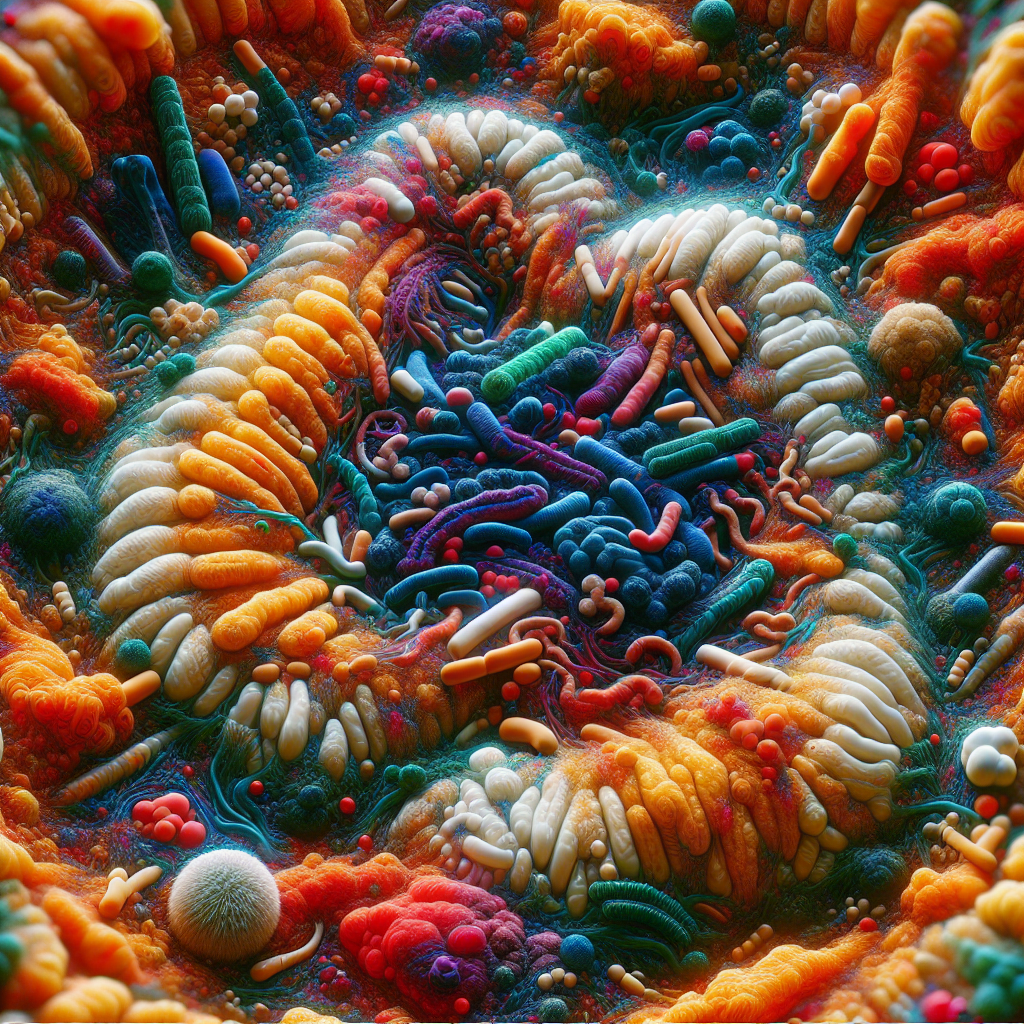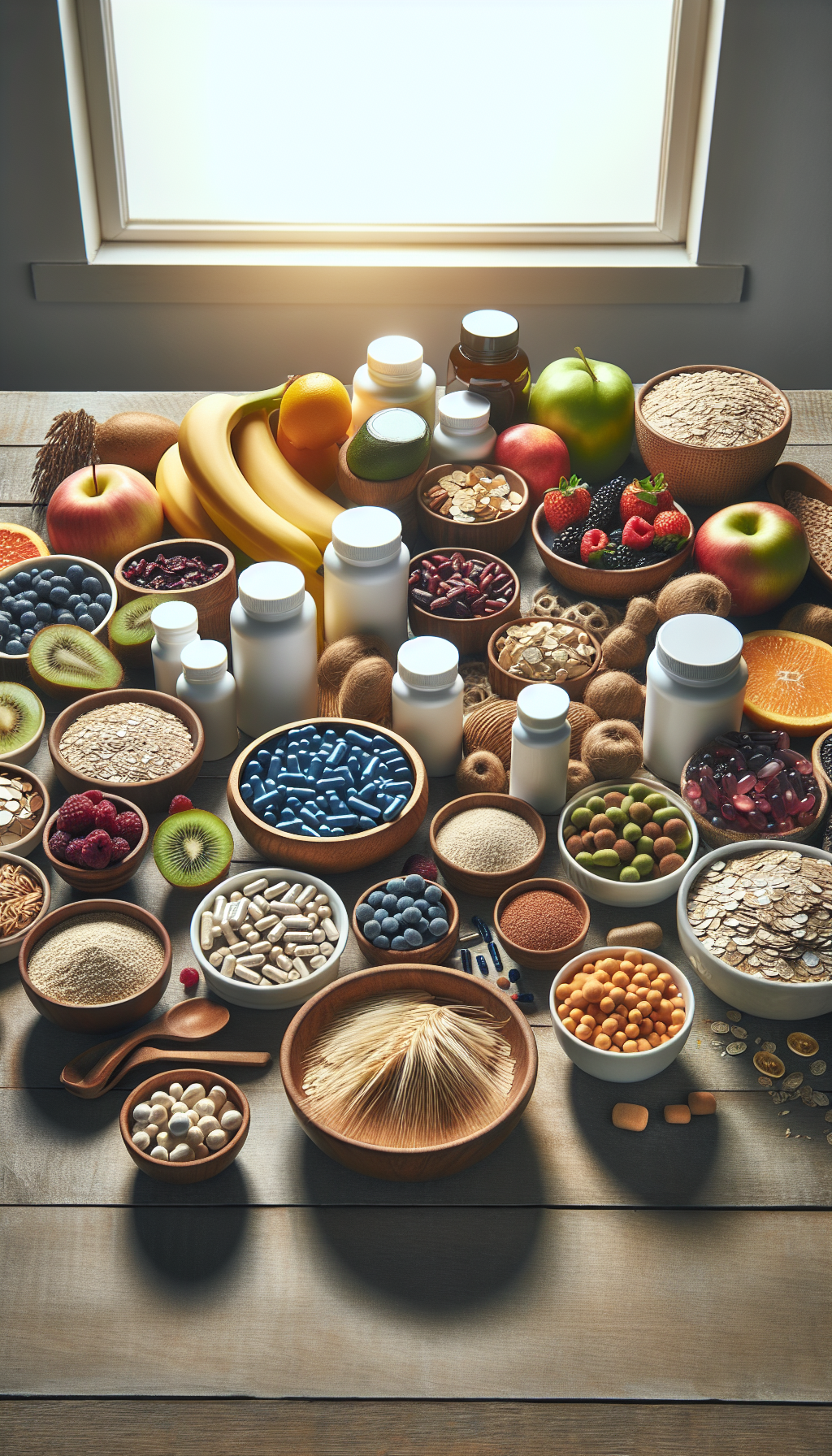In the quest for optimal health, the gut occupies a central role, serving as the battleground for numerous physiological and biochemical processes that dictate overall well-being. Prebiotic fibers are increasingly recognized as crucial players in gut health maintenance. This article delves into the intricacies of prebiotic fibers, their impact on the digestive system, and practical advice on incorporating them into a daily diet for enhanced health outcomes.
What Are Prebiotic Fibers?
Prebiotic fibers are a type of indigestible plant fiber that act as nourishment for the beneficial bacteria in the gut. Unlike other dietary fibers, prebiotics are selectively utilized by host microorganisms, conferring a health benefit. They are found in a variety of foods, including bananas, onions, garlic, leeks, asparagus, artichokes, and whole grains.
The Gut Microbiome and Its Importance
The human gut is teeming with trillions of bacteria, viruses, and fungi, collectively known as the microbiome. This complex ecosystem plays a pivotal role in digestive health, immune function, and even mental well-being. A balanced gut microbiome is essential for proper nutrient absorption, synthesis of vitamins, and protection against pathogens.
How Prebiotic Fibers Benefit the Gut
Prebiotic fibers are not digested by the human body but are instead fermented by the beneficial bacteria in the colon. This fermentation process produces short-chain fatty acids (SCFAs), which serve as energy sources for colon cells and have been linked to numerous health benefits, including:
- Enhancing Gut Barrier Function: SCFAs help maintain the integrity of the gut barrier, protecting against the entry of harmful substances into the bloodstream.
- Modulating the Immune System: They play a role in the development and function of the immune system, helping to reduce inflammation and potentially lowering the risk of chronic diseases.
- Regulating Bowel Movements: The consumption of prebiotic fibers can improve bowel regularity, helping to prevent constipation and promote a healthy digestive tract.
The Synergy Between Probiotics and Prebiotics
While probiotics are live beneficial bacteria, prebiotics serve as their food source. Combining both, often referred to as synbiotics, can have a synergistic effect, enhancing the survival and colonization of probiotics in the gut. This combination is believed to amplify the benefits associated with each, such as combating antibiotic side effects and improving overall gut flora balance.
Prebiotics and Chronic Disease Prevention
Mounting evidence suggests that prebiotic fibers may have a protective role against various chronic conditions. For instance, they have been linked to reduced risks of cardiovascular disease, certain types of cancer, and type 2 diabetes. This is largely attributed to their impact on gut health, systemic inflammation, and body weight regulation.
Incorporating Prebiotics into Your Diet
To reap the benefits of prebiotic fibers, it’s essential to integrate them into your daily diet. Here are some practical tips:
- Diversify Your Fiber Sources: Include a variety of prebiotic-rich foods in your meals, such as chicory root, Jerusalem artichokes, dandelion greens, and flaxseeds.
- Gradual Introduction: If you’re not used to a high-fiber diet, start slowly to prevent bloating and digestive discomfort. For guidance, consider strategies outlined in Strategies to Overcome Bloating and Digestive Discomfort.
- Consider Supplements: If dietary changes are challenging, prebiotic supplements can be an alternative. However, it’s best to consult with a healthcare professional before starting any new supplement regimen.
Prebiotics for Specific Health Conditions
Certain digestive conditions might benefit from a tailored prebiotic intake. For instance, patients with irritable bowel syndrome (IBS) may find symptom relief by modulating their fiber intake. For more on this, explore the insights in Tailoring Nutrition to Combat Irritable Bowel Syndrome.
External Resources for Further Reading
- A study on the health impact of prebiotic fibers and their potential in chronic disease prevention can be found at National Institutes of Health.
- For a deeper understanding of the gut microbiome and its relationship with diet, the American Microbiome Institute offers detailed articles and research findings.
- An exploration of the symbiotic relationship between prebiotics and probiotics and its effects can be accessed at International Scientific Association for Probiotics and Prebiotics.
In conclusion, prebiotic fibers play a vital role in maintaining gut health and, by extension, overall health. With their ability to nourish beneficial gut bacteria, mitigate inflammation, and potentially stave off chronic diseases, they are a crucial component of a healthful diet. By incorporating a diverse array of prebiotic-rich foods into your meals and considering the use of supplements when necessary, you can take proactive steps to support your digestive system and enhance your well-being.



